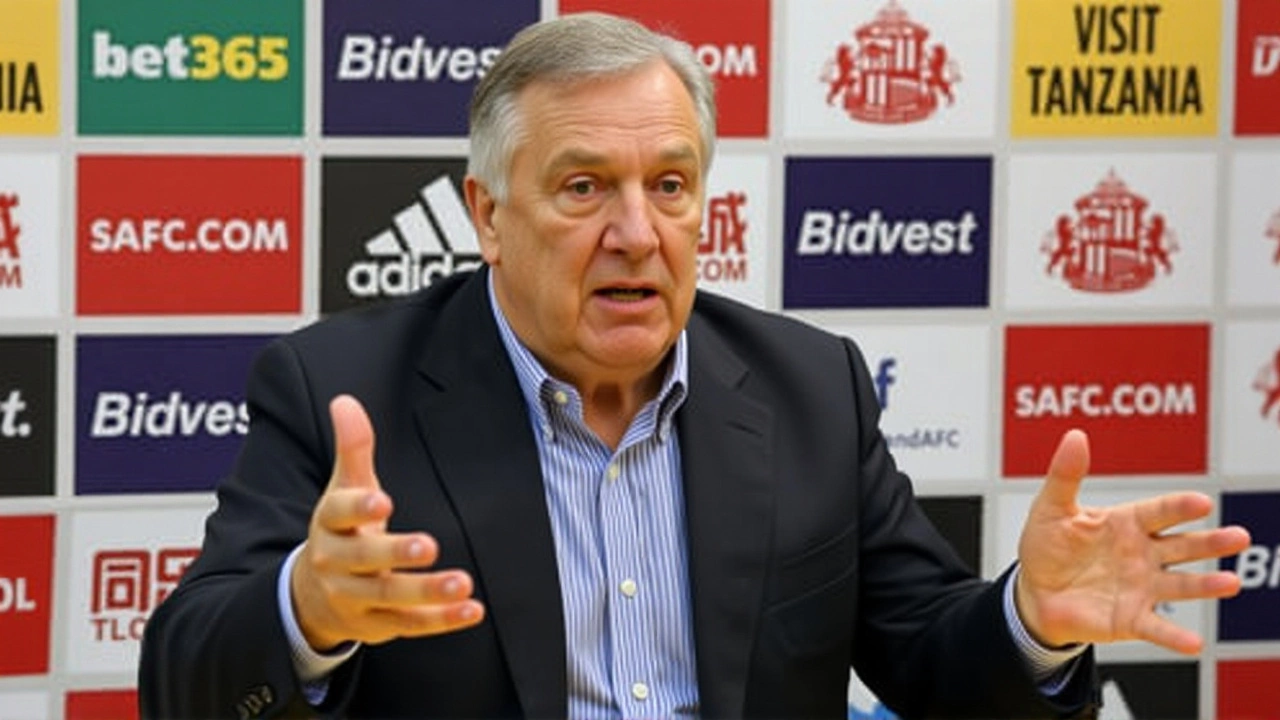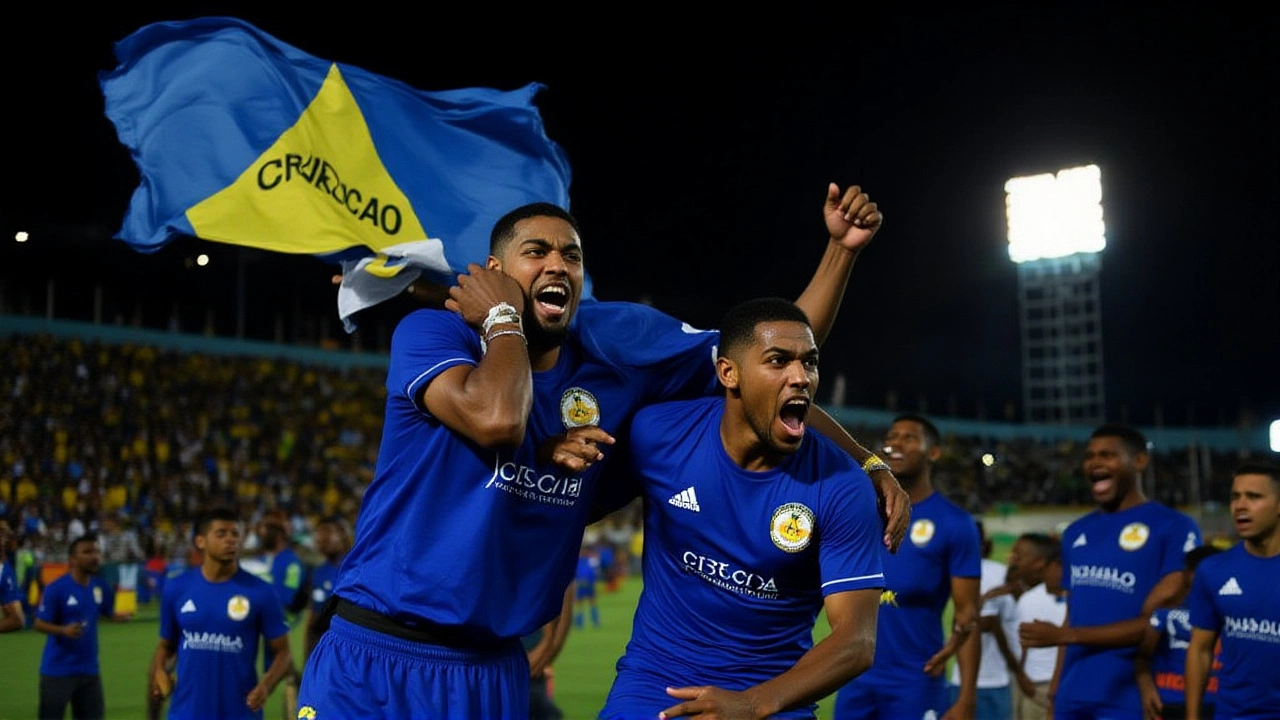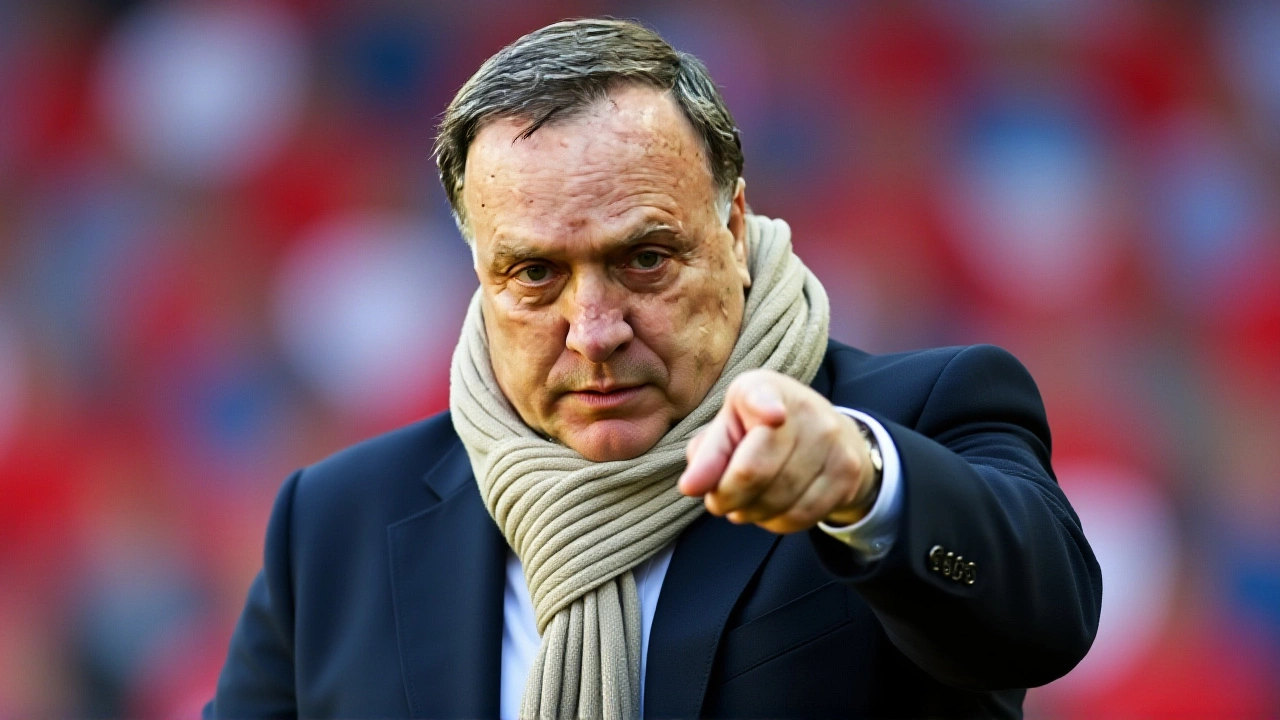
At 78 years old, Dick Advocaat didn’t just coach a team to the World Cup—he rewrote history. On November 18, 2025, at 23:39 UTC, his Curaçao national football team held Jamaica to a 1-1 draw at the National Stadium in Kingston, Jamaica, sealing their place in the 2026 FIFA World CupUnited States, Mexico, and Canada. With a population of just 165,000, Curaçao becomes the smallest nation ever to qualify for the tournament. And Advocaat? He’s now the oldest manager in World Cup history, shattering the 15-year-old record held by Greece’s Otto Rehhagel, who was 71 years and 317 days old in 2010.
A Manager Who Refuses to Retire
Dick Advocaat didn’t stumble into this moment—he built it, brick by brick, over four decades and five continents. Born in The Hague in 1947, he’s managed clubs from PSV Eindhoven to Rangers FC, and national teams from the Netherlands to Iraq. He even played for the Chicago Sting in the NASL back in the late 1970s. At 78, he’s not slowing down. He’s just getting started.
His record with Curaçao is astonishing: five matches, three wins, two draws. No losses. No household names. Just grit, discipline, and a masterclass in tactical adaptation. Players like Livano Comenencia and Kenji Gorré—both from PSV Eindhoven—scored the decisive goals in their 2-0 win over Jamaica in October. Others came from Rotherham United and Livingston FC. The squad? A mosaic of the Caribbean diaspora. The strategy? Pure Advocaat.
How a Tiny Island Defied the Odds
Curaçao’s qualification didn’t come from luck. It came from timing. The 2026 World Cup expanded to 48 teams—and for the first time, the tournament is co-hosted by three nations: the U.S., Mexico, and Canada. That meant CONCACAF allocated more spots to smaller Caribbean teams. But even with the extra slots, Curaçao had to beat teams with bigger budgets, better academies, and more media attention. Jamaica, under former England manager Steve Bruce McLaren, was their final hurdle. And they didn’t just compete—they held firm.
“It’s not about money,” Advocaat told reporters after the match. “It’s about belief. And we have more of that than most.”
That belief is contagious. ESPN called it “arguably his greatest against-all-odds glory.” Flashscore.com labeled it “historic.” Inside Ibrox noted the squad had “no household names,” yet went undefeated. The numbers don’t lie: Curaçao qualified with 11 points from five games. Jamaica, despite their pedigree, finished third in the group. The twist? Advocaat had already been to the World Cup as a manager—in 1994, when he led the Netherlands to the quarter-finals in the U.S. He knows what this stage demands. He’s been there. Now, he’s taking a tiny island with him.

The Ripple Effect Across the Caribbean
This isn’t just a feel-good story—it’s a seismic shift for Caribbean football. CONCACAF, headquartered in Miami, Florida, has long prioritized larger nations like the U.S., Mexico, and Costa Rica. But Curaçao’s success proves that with smart management, even the smallest members can compete. Jamaica’s recent appointment of McLaren—a former Premier League manager—was meant to elevate their chances. Instead, it highlighted how a veteran like Advocaat can outmaneuver even the most decorated names.
Experts say this could trigger a domino effect. Nations like Antigua and Barbuda, Grenada, and even Saint Kitts and Nevis are already rethinking their development models. The message is clear: you don’t need a billion-dollar academy. You need a leader who knows how to build belief.
What Comes Next?
The 2026 FIFA World CupUnited States, Mexico, and Canada kicks off on June 11, 2026. Curaçao will play in one of 16 venues across the three host nations. Advocaat has already begun studying group-stage opponents, drawing on his experience from 1994 and his years managing in Russia and South Korea. He’s not dreaming of winning the tournament—he’s dreaming of winning one game. And if they do? It’ll be the biggest upset since Iceland beat England in 2016.
Behind the scenes, Curaçao’s football federation is already planning for legacy. Youth academies are being expanded. Grassroots funding is increasing. And for the first time, young players on the island believe they can make it—not just to the national team, but to the World Cup stage.

A Legacy Written in Unlikely Ink
Dick Advocaat didn’t become a legend because he won trophies in Glasgow or St. Petersburg. He became one because, at 78, he took a team nobody believed in and made them immortal. He’s not just the oldest World Cup manager. He’s the proof that passion, experience, and stubbornness can overcome size, budget, and odds.
When the final whistle blew in Kingston, the players fell to their knees. Advocaat stood still, arms crossed, watching. No celebration. No tears. Just quiet satisfaction. He’d done what he set out to do. And now, the world will never forget Curaçao.
Frequently Asked Questions
How did Curaçao qualify for the 2026 World Cup despite having such a small population?
Curaçao qualified by finishing top of their CONCACAF qualifying group with three wins and two draws in five matches, including a decisive 2-0 win over Jamaica in October 2025. The expanded 48-team format for 2026 and the co-hosting arrangement by the U.S., Mexico, and Canada created more opportunities for smaller nations. Advocaat’s disciplined tactics and use of diaspora talent from Scotland, England, and the Netherlands turned limited resources into a cohesive unit.
What record did Dick Advocaat break, and who held it before?
Advocaat became the oldest manager ever to qualify a team for the World Cup at 78 years and 63 days, surpassing Otto Rehhagel, who was 71 years and 317 days old when he led Greece to the 2010 World Cup. Advocaat’s longevity is unmatched—he’s managed national teams across five continents and club sides in four countries, with his career spanning over 40 years.
Who are the key players on Curaçao’s 2026 World Cup squad?
Curaçao’s squad features no global superstars, but several players with professional experience: Livano Comenencia and Kenji Gorré, both from PSV Eindhoven, scored crucial goals in qualifying. Others come from Rotherham United in England and Livingston FC in Scotland. Advocaat’s strategy relies on tactical discipline over individual flair, turning under-the-radar professionals into a unified team.
Why is this qualification significant for Caribbean football?
Curaçao’s success challenges the notion that only wealthier nations can compete at the highest level. It’s a blueprint for smaller CONCACAF members like Jamaica, Grenada, and Antigua and Barbuda, showing that smart coaching and diaspora engagement can overcome financial disadvantages. CONCACAF may now increase funding for grassroots programs, and youth academies across the region are already taking notice.
Has Dick Advocaat managed any other World Cup teams before?
Yes. Advocaat led the Netherlands to the quarter-finals of the 1994 World Cup in the United States, and he also managed South Korea (2005–2006), Belgium (2009–2010), and Russia (2010–2012). His experience in North America from 1994 gives him unique insight into the conditions Curaçao will face in 2026, from climate to travel logistics.
What’s the next step for Curaçao after qualifying?
Curaçao’s federation is focusing on preparation for the June 2026 tournament, including training camps in the U.S. and Canada to acclimate to the conditions. They’re also negotiating friendly matches against higher-ranked teams for exposure. Beyond the tournament, the goal is to use this platform to boost youth development, secure sponsorships, and inspire a generation of Caribbean players who now believe the World Cup is within reach.

Write a comment